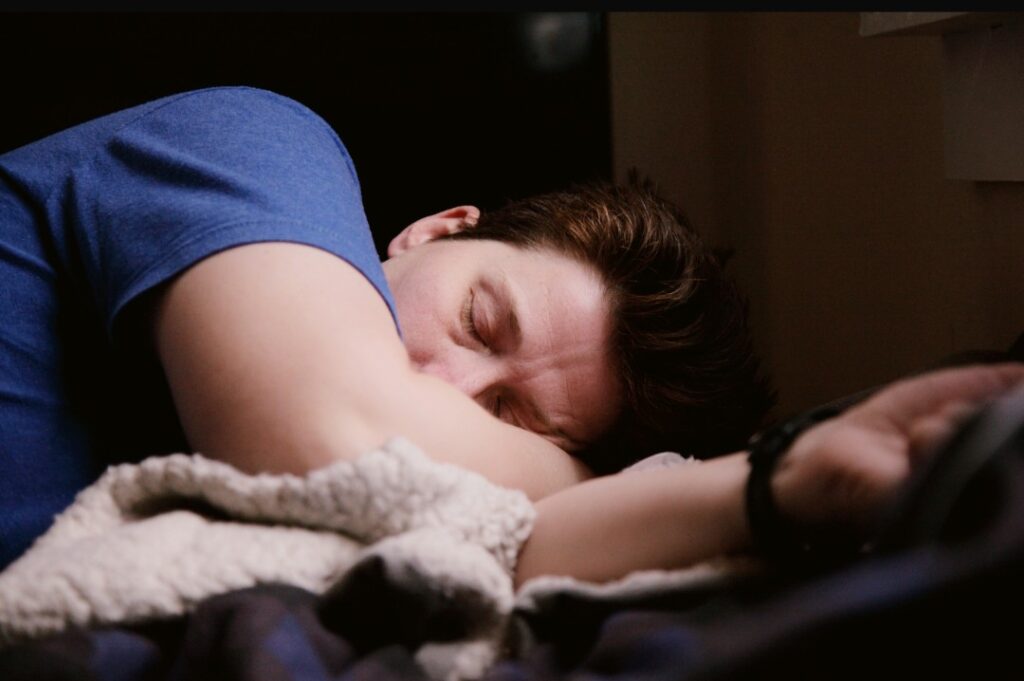ASD can impact people in a number of ways but do autistic adults need more sleep? We explore all below.
Sleep and autism
Issues with sleep are one of the most common problems that parents in our position report.
Autistic children often have problems falling and staying asleep. We have various articles on the topic here.
When it comes to autistic adults however, this becomes a standalone issue. It is not like for example many autistic adults will be climbing into bed with their parents.
But with that said it remains very possible that problems with sleep are still present.
Hypersenstivity
Autistic people are often hypersensitive to outside input such as sounds, smells and textures.
This hypersensitivity can be impactful when it comes to sleep times. Whereas neuro-typical people may not notice outside sounds for example, someone with autism might pick up on everything.
With that being the case it is commonly reported that many autistic adults wake repeatedly during the night.
This obviously means that their sleep is broken and they may need more time in bed.
These hypersensitivities also can make it difficult to fall back to sleep, adding to the impact of the disturbance.

Repetitive behaviours
Another hallmark of autism is adults and children engaging in repetitive behaviours.
These will vary from person to person but they often involve a degree of physical movement.
This movement can lead to increased calories being burnt throughout the day. Whilst it is not as obvious as them spending hours in the gym, if an autistic individual is constantly moving then the calorie burning adds up.
So if they are operating at a calorie deficit during the day then naturally sleep becomes paramount.
Limited diets
Some autistic individuals can have extremely limited diets. This can be due to fondness for routine or down to sensory sensitivities.
If these limitations have persisted into adulthood then fatigue may be present due to an unbalanced diet.
For.example if an autistic adult only likes to eat cheese sandwiches (coming from experience) then their nutritional consumption is limited.
The result of these limitations may mean that the individual is more tired and needs more sleep.
Anxiety
The world can be a difficult and overwhelming place for those with autism. Things which the neuro-typical take for granted can cause spikes in stress for those with autism.
With that being the case it stands to reason that their mind may have to work on overtime during the day.
For example something like a simple corridor interaction may cause someone with autism to overanalyse. They may play the interaction over again and again in their heads afterwards.
This mental stress, when multiplied over the course of a day can lead to tiredness come evening time.
Any studies examining do autistic adults need more sleep?
Now we understand why autistic individuals may be more tired it is important to see how it manifests.
You will be glad to know that there have been some scientific studies on the topic.
One study found that autistic adults slept an average of 8.4 hours per night, while non-autistic adults slept an average of 7.5 hours per night.
The study also found that autistic adults were more likely to report difficulty falling asleep and staying asleep.
Another study found that autistic adults were more likely to have rhythm sleep-wake disorders.
These are conditions that disrupt the body’s natural sleep-wake cycle.
Such disorders can make it difficult to fall asleep and wake up at regular times, and they can also lead to excessive daytime sleepiness.
What can be done?
The first thing which we would recommend is to be empathetic to autistic friends, colleagues and family members.
Things which many of us take for granted can be difficult for those with autism, sleep being one of them.
If you are concerned about someone close to you, then pointing them in the direction of medical advice may be required.
There are various supplements which have been shown to help people fall and stay asleep.
Therapists and doctors can also provide practical, bespoke advice to the individual.
If your friend or family member struggles with their sleep then they may have tried to find their own solutions.
With that said however you could suggest things like blackout blinds, white noise machines or weighted blankets.
Summary – Do autistic adults need more sleep?
Like so much with autism, there is no one size-fits all answer to this question.
The amount of sleep needed varies from one autistic person to another.
However, there is some evidence to suggest that autistic adults may need more sleep than the general population as an average.
The reasons for this need for more sleep will vary wildly from sensory factors to calorie deficits.
If someone you know with autism is struggling with their sleep then empathy is important.
Sleep is one of the building blocks of life and if they are struggling it can have a negative impact on their wider lifestyle.
Therapy, supplementation and practical changes to the sleep environment can all help.


As a neuro-diverse adult I can confirm that I regularly feel tired more than I feel I ‘should’.
I hear stories about people living off 5 hours sleep and honestly I can’t imagine that. Less than 8 and I’m a zombie.
Really?
That’s so interesting. How is your sleep when you fall asleep? Do you sleep through?